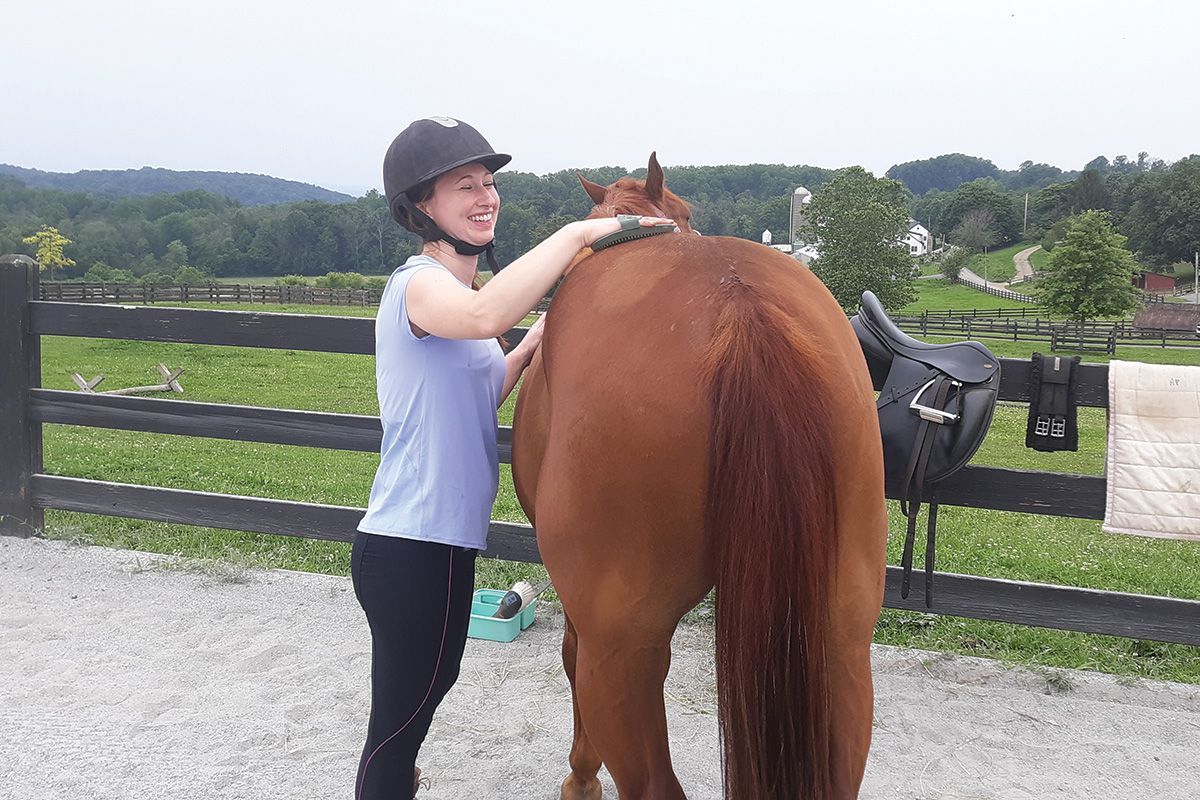What Are the Requirements to Be a Horse Vet?
If you love horses and feel concerned about their health and well-being, you might consider becoming a horse vet. Horse veterinarians perform duties ranging from administering vaccinations and performing surgical procedures to researching horse illnesses and preventing epidemics. Read on to see if a career in equine medicine is right for you.
What Does a Horse Vet Do?
Horse vets monitor the health and fitness of horses, usually by immunizing them against disease and treating their injuries or sicknesses. As a horse vet, you'll most likely run a private practice. In your role as private practitioner, you'll go from location to location checking on horses. Your work will require you to work outdoors in all types of weather, sometimes in unsanitary conditions. Your duties include performing physical examinations, making diagnoses, treating wounds, prescribing medications, performing surgery and advising owners on horse care. You'll also have other career options, such as researching equine diseases at universities or government agencies, developing new drugs or products for horses or teaching medicine to aspiring veterinarians.
Important Facts about Horse Vets
Job Outlook (2021-2031) - 19% growth (for all veterinarians)
Median Salary (May 2021) - $100,370 (for all veterinarians)
Entry-level Education - Doctor of Veterinary Medicine
Licensing - passing the North American Veterinary License Exam is required
Educational Requirements
You may or may not need to earn an undergraduate degree before you enter a veterinary medicine program. Although some schools don't list a bachelor's degree as a requirement, most schools receive many applications and only the most qualified students can be admitted; therefore, earning an undergraduate degree, can give you a competitive edge. You need to complete pre-veterinary training during your undergraduate degree program, taking prerequisite classes in biology, chemistry, zoology and physics. It's also important to gain experience working with animals, either through paid or volunteer work.
After completing your undergraduate education, you must graduate from veterinary school and earn a Doctor of Veterinary Medicine (D.V.M.). A 4-year D.V.M. program includes coursework in mechanisms of disease, therapeutic strategies and pathology, among other subjects. You'll also be given the opportunity to take elective courses related to your interests, such as equine medicine. During your fourth and final year, you'll receive clinical training where you'll practice your diagnostic and therapeutic skills on a variety of different species.
Internships and Residencies
According to the U.S. Bureau of Labor Statistics (BLS), some veterinarians start practicing medicine immediately after completing their D.V.M. program, but many turn to 1-year internships for additional training. An internship could help prepare you for a competitive position or higher paying opportunity. A 1-year internship is also necessary to be accepted into some residency programs and to be eligible for board certification.
After graduating from veterinary school and possibly completing an internship, you could then enter a 3-year residency in equine medicine. During your residency, you'll be clinically trained in equine internal medicine and have opportunities to teach veterinary students and conduct veterinary research. Some programs require you to concurrently earn a master's degree, while others make it an option if you're particularly interested in research.
Licensure
You'll have to obtain a veterinary license before you can practice in any state. To receive your license, you'll need to complete your D.V.M. degree program and pass the North American Veterinary Licensing Exam. Many states have additional requirements, which might include passing an exam on state laws.
As a horse vet, you also have the option to earn board certification in internal medicine from the American College of Veterinary Internal Medicine. To be eligible for board certification, you'll need to have graduated from an accredited veterinary school, completed a 1-year internship and completed an approved residency program. You need to register as a candidate for board certification within 90 days of starting your residency. To be granted certification, you also need to pass general and specialty examinations.
Career Outlook
The expected increase in employment for this occupation may be partially due to the fact that more people are taking their pets to the vet, as well as technical advancements in the field of veterinary medicine. Since relatively few veterinarians choose to work with large animals, job prospects will likely be better for equine vets than for those who work with companion animals.
Source: https://learn.org/articles/What_Are_the_Requirements_to_be_a_Horse_Vet.html


